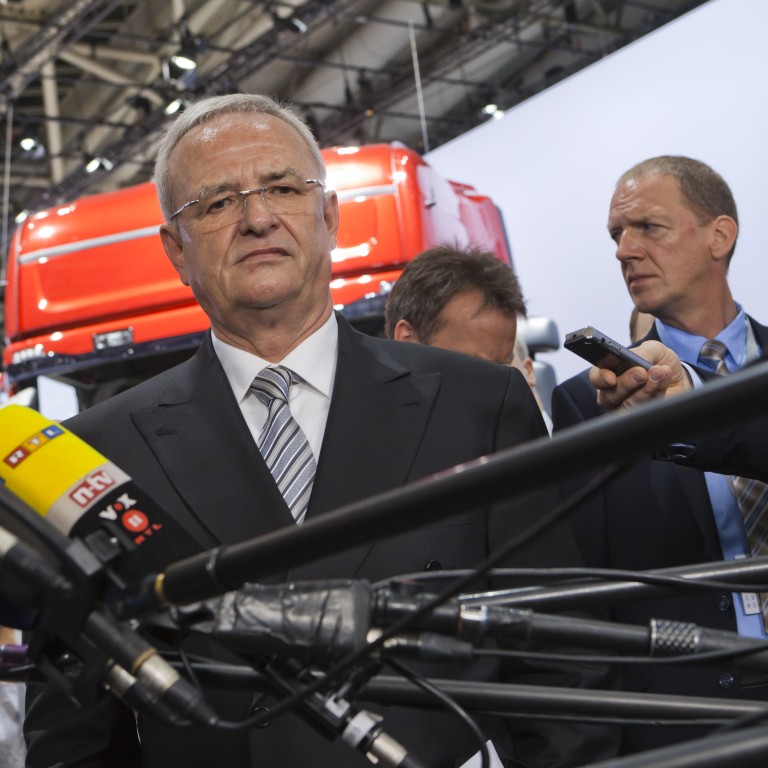
Volkswagen battle highlights contrast between family-run firms in Asia and Europe
I cannot think of a single instance in Hong Kong, or indeed elsewhere in Asia, where the family controlling the bulk of a company’s shares has suffered defeat at the hands of its board of directors
Here’s a headline you won’t be reading anytime soon regarding a Hong Kong company: ‘Chairman forced to resign from firm his family controls’, however this is precisely what has happened at Volkswagen, one of Germany’s largest companies.
It’s a complicated story but has ended in the resignation of Ferdinand Piech, after losing a boardroom battle with, Martin Winterkorn, his successor as Chief Executive. Piech, a patrician corporate leader has been a towering figure in the global auto industry for decades and his family, alongside the related Porsche family, controls the majority of VW’s shares.
Under Piech’s leadership Volkswagen extended its already growing dominance of the European auto industry having acquired brands in every sector of the business ranging from the luxury end with Bentley, Bugatti and Lamborghini, to the grubbier truck business of Scania and down in the mass car market it scooped up the failing Seat and Skoda marques, transforming them into companies making infinitely better cars. And then there’s the iconic Ducati motorcycle brand.
The reasons for the conflict between Piech and Winkerton are not wholly clear but the fact that VW’s board, containing provincial government, employee and shareholder representatives, was able to force out the chairman highlights the difference in the ways that family controlled public companies conduct their affairs in Europe and Asia.
I cannot think of a single instance in Hong Kong, or indeed elsewhere in Asia, where the family controlling the bulk of a company’s shares has suffered defeat at the hands of its board of directors.
Splits within controlling families are another matter, as we have seen in the local SHK group, but it is no exaggeration to say that boards of directors in this part of the world essentially function to support the ruling families.
Most of Asia’s biggest corporations, ranging from Japan’s Toyota to South Korea’s Samsung, to the Ayala group in the Philippines, the Tata group in India and, of course all the dominant conglomerates in Hong Kong, remain under firm family control, usually the ultimate control of just one person.
Business development theory has it that as companies move along the generations, become bigger and more sophisticated, both ownership and control widens, usually to the benefit of the companies in question.
At VW, the backlash against Piech appears to have been fuelled by criticism of his excessive deal making and focus on vanity projects while the core VW brand suffered. The great man was said to have had his day and that the time had come for less centralized control and a more objective way of running this sprawling business.
The great man’s day is never done in Asian companies, which is why some very elderly patriarchs cling to power, at best ceding a degree of control to their sons. It is hardly axiomatic that these sons will lack the wherewithal to run their father’s companies, nor is it right to underestimate the experience and shrewdness of these old men who built formidable business empires.
However logic dictates that it is highly unlikely that only one person in any given company has the ability to lead it and that a prerequisite for their assumption of power is an accident of birth. In many Western companies the shrewder families understood this and developed a corporate structure that preserved their ultimate control but handed day-to-day management to professionals from outside these families.
In Asia, family patriarchs have taken to sending their offspring overseas to fancy universities and schools to acquire a more international perspective and, in some, rare instances they have encouraged them to have work experience outside the family firms. Interestingly Piech himself is a good example of the value of this approach as his grandfather Ferdinand Porsche forced all family members to quit management jobs at Volkswagen. Piech then joined Audi and only returned to the family business once the company he had helped to revive was taken over by VW.
Such a stern edict on family members being barred from performing management roles is, to the best of my knowledge, unknown in Asia however there are a great many examples of incompetent family members in very prominent positions.
Nevertheless things are changing in Asia and it is now commonplace to see skilled professional managers running divisions of big conglomerates and being given a fair degree of autonomy. That autonomy however tends to have its limits, sometimes to the extent that forces these professional managers to quit. I know one very senior executive who found himself in precisely this position; he told me that when it came to challenging the meddling of the boss’ son in the way he was running his operations he knew that family always came first and so he left.
The ultimate survival of companies run on these lines remains an open question.

